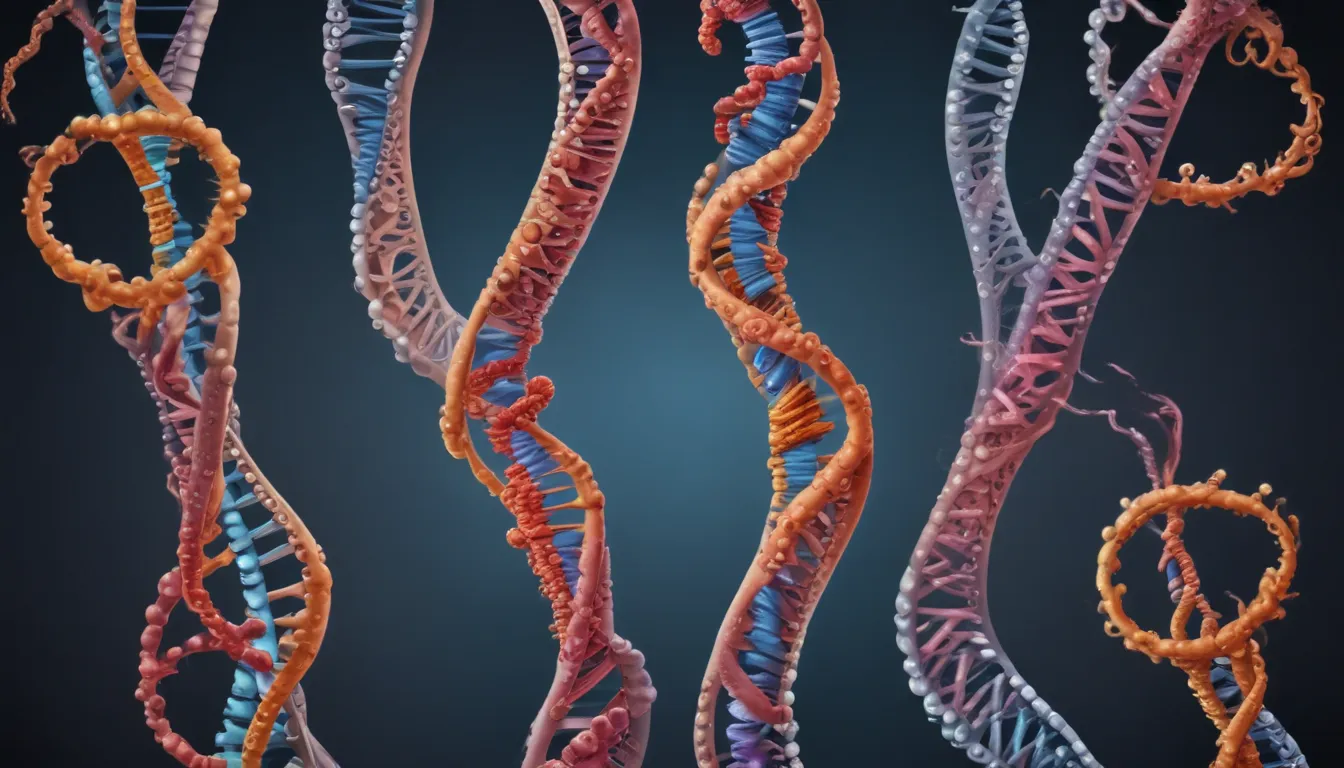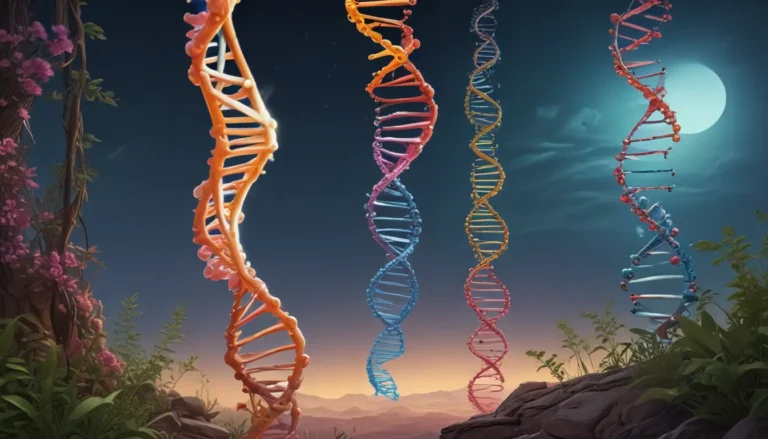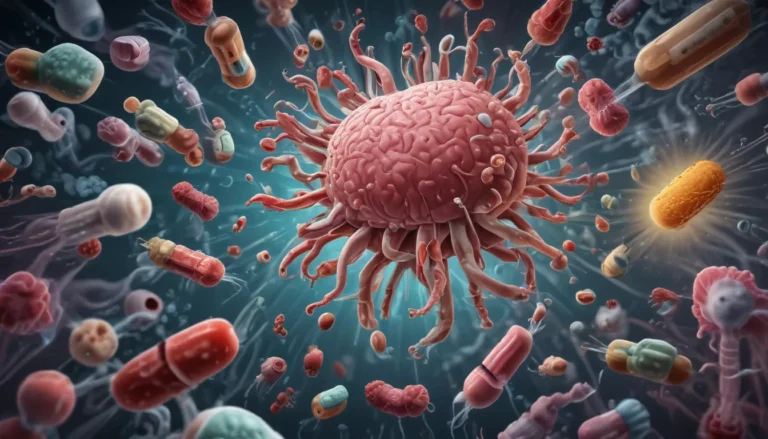A Note About Images: The images used in our articles are for illustration purposes only and may not exactly match the content. They are meant to engage readers, but the text should be relied upon for accurate information.
Welcome to the captivating world of chromosomal abnormalities, a complex and fascinating aspect of biology that can have profound effects on human health and development. These abnormalities, stemming from changes in the structure or number of chromosomes in our cells, can lead to a diverse array of physical, cognitive, and developmental challenges. In this article, we will embark on a journey to explore the depths of chromosomal abnormalities and unearth 15 engrossing facts about them. From the origins and prevalence of these abnormalities to their causes, effects, and potential treatments, we will unravel the mysteries of genetics and biology. So, prepare to be amazed as we delve into the realm of chromosomal abnormalities.
Understanding Chromosomal Abnormalities
- Chromosomal abnormalities can cause genetic disorders and health conditions, leading to developmental delays and physical abnormalities. Early detection and genetic counseling are crucial for managing these conditions.
- These changes can result in a wide range of genetic disorders and health conditions.
- Down syndrome, caused by an extra copy of chromosome 21, is one of the most well-known chromosomal abnormalities.
- Turner syndrome affects females and occurs when one X chromosome is missing or partially missing.
- Klinefelter syndrome affects males, characterized by the presence of an extra X chromosome, leading to infertility and physical characteristics.
Effects and Implications
- Chromosomal abnormalities can lead to developmental delays and intellectual disabilities, necessitating additional support and specialized care for affected individuals.
- Trisomy 18, also known as Edwards syndrome, affects multiple organs and systems due to an extra copy of chromosome 18.
- Some chromosomal abnormalities are associated with an increased risk of certain types of cancer, such as breast and ovarian cancer.
- Physical abnormalities like cleft lip, heart defects, and limb abnormalities may be present in individuals with certain chromosomal disorders.
- These abnormalities can occur spontaneously or be inherited, with errors during cell division or parental transmission contributing to their development.
Diagnosis and Management
- Amniocentesis and chorionic villus sampling are prenatal testing methods used to detect chromosomal abnormalities before birth.
- These abnormalities can have varying degrees of impact on health and development, ranging from life-threatening conditions to milder effects.
- Genetic counseling plays a vital role in helping individuals and families navigate the complexities of chromosomal abnormalities.
- Advances in genetic testing have enhanced the detection and understanding of these abnormalities, leading to more accurate diagnosis and treatment planning.
- Ongoing research is focused on better comprehending chromosomal abnormalities and developing targeted therapies to manage and potentially prevent these conditions.
As we unravel the 15 fascinating facts about chromosomal abnormalities, the profound impact of these genetic disorders on individuals and families becomes evident. Understanding the causes and implications of these abnormalities is key to early detection, diagnosis, and effective management. Through continuous research and advancements in genetic medicine, efforts are aimed at improving the lives of those affected by these conditions and ultimately finding ways to prevent them.
FAQs
-
What are chromosomal abnormalities?
Chromosomal abnormalities are genetic disorders resulting from changes in the structure or number of chromosomes, leading to various health conditions and developmental challenges. -
How common are chromosomal abnormalities?
The prevalence of chromosomal abnormalities varies, with conditions like Down syndrome being more common and others like Turner syndrome being relatively rare. -
What are the causes of chromosomal abnormalities?
Chromosomal abnormalities can arise from errors during cell division, environmental factors, or inheritance from parents with abnormal chromosomes. -
Can chromosomal abnormalities be detected before birth?
Yes, prenatal testing methods like amniocentesis can often detect chromosomal abnormalities in the fetus. -
Are chromosomal abnormalities treatable?
Treatment varies depending on the condition, with supportive therapies and interventions available to manage symptoms and improve quality of life. -
Can chromosomal abnormalities be passed on to future generations?
Some can be inherited from parents with abnormal chromosomes, but not all are hereditary. -
Can chromosomal abnormalities be prevented?
Prevention is challenging due to spontaneous genetic mutations, but genetic counseling and prenatal testing can help assess the risk. -
Are chromosomal abnormalities always visible at birth?
Not all abnormalities are immediately apparent, with some becoming evident later in life. -
Can chromosomal abnormalities affect fertility?
Certain abnormalities can impact fertility, but medical interventions can help achieve fertility. -
Are there preventive measures to reduce the risk of chromosomal abnormalities?
Maintaining a healthy lifestyle during pregnancy and seeking regular prenatal care can promote optimal fetal development.
Chromosomal abnormalities are a captivating subject of research and exploration, offering insights into the complexities of genetics and biology. By delving into these 15 intriguing facts, we gain a deeper understanding of these conditions and the ongoing efforts to decipher their mysteries for the betterment of affected individuals and their families. Together, we continue to unravel the enigmatic world of chromosomal abnormalities, paving the way for advancements in diagnosis, treatment, and prevention.






